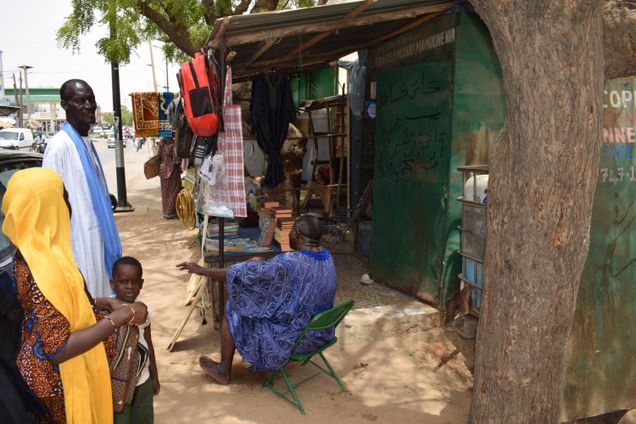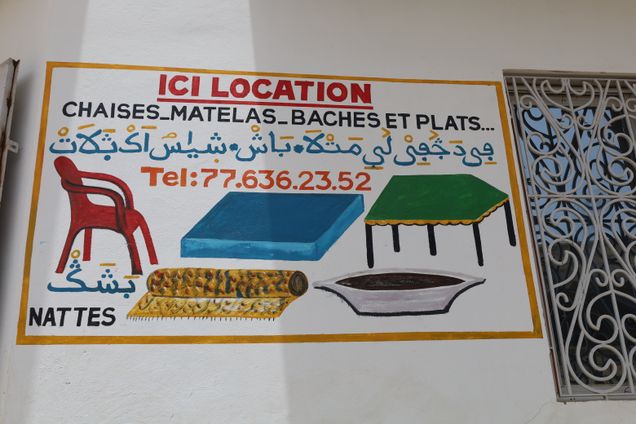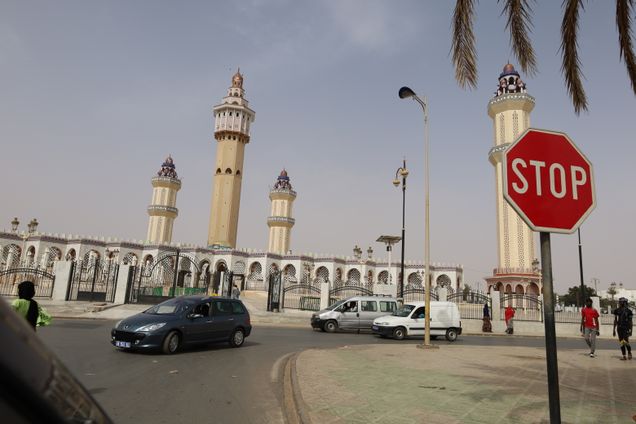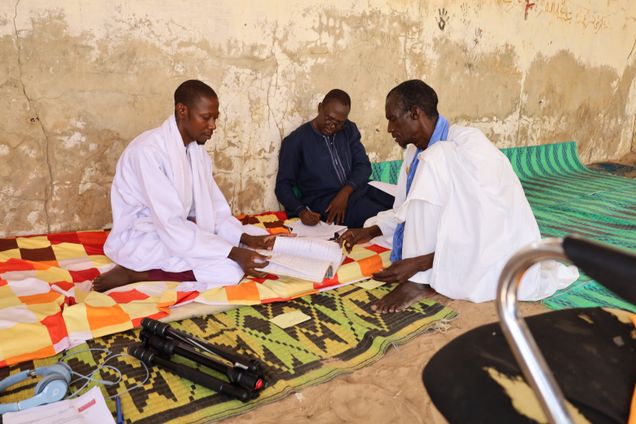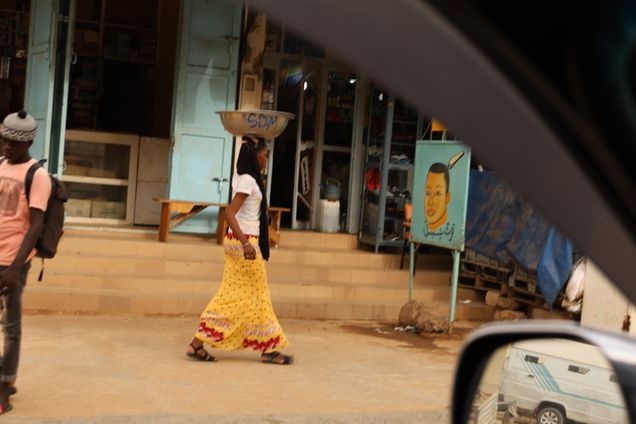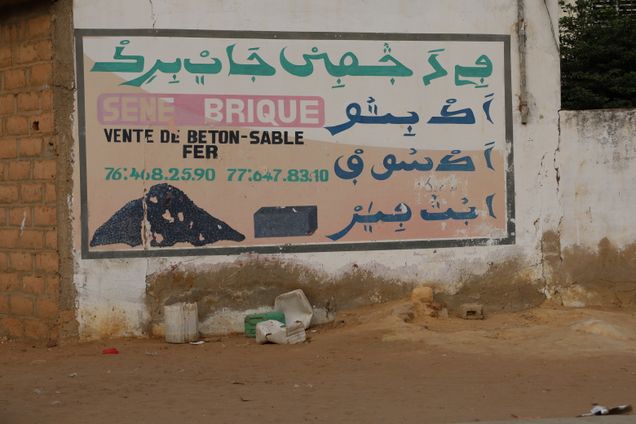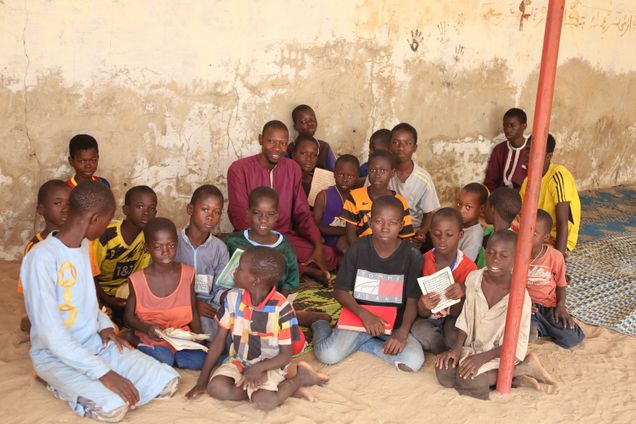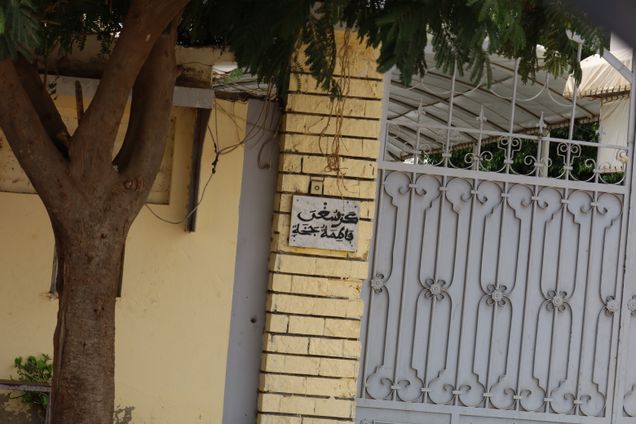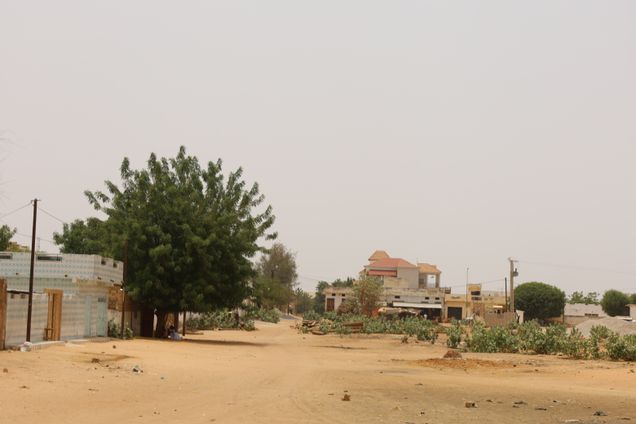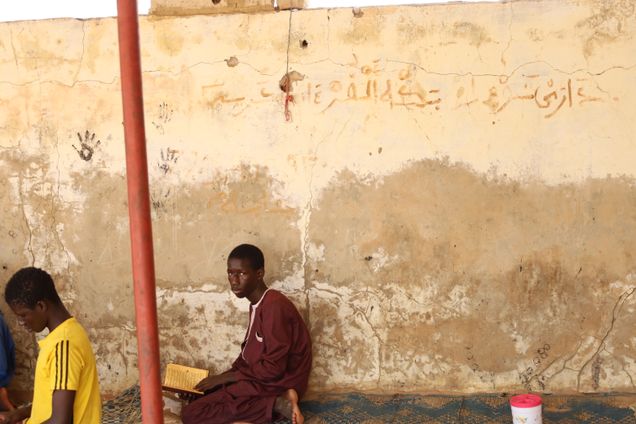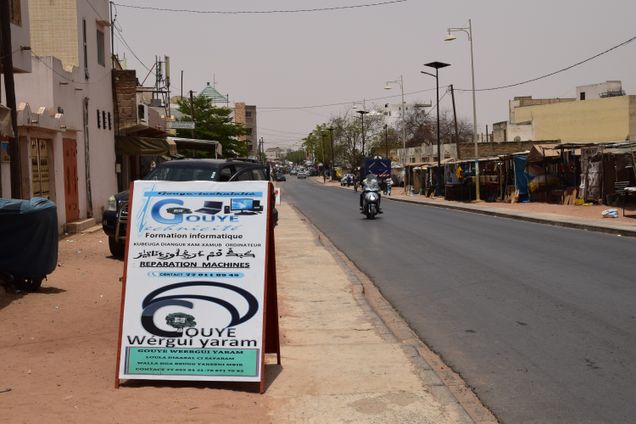Unit 1: Dame Diané
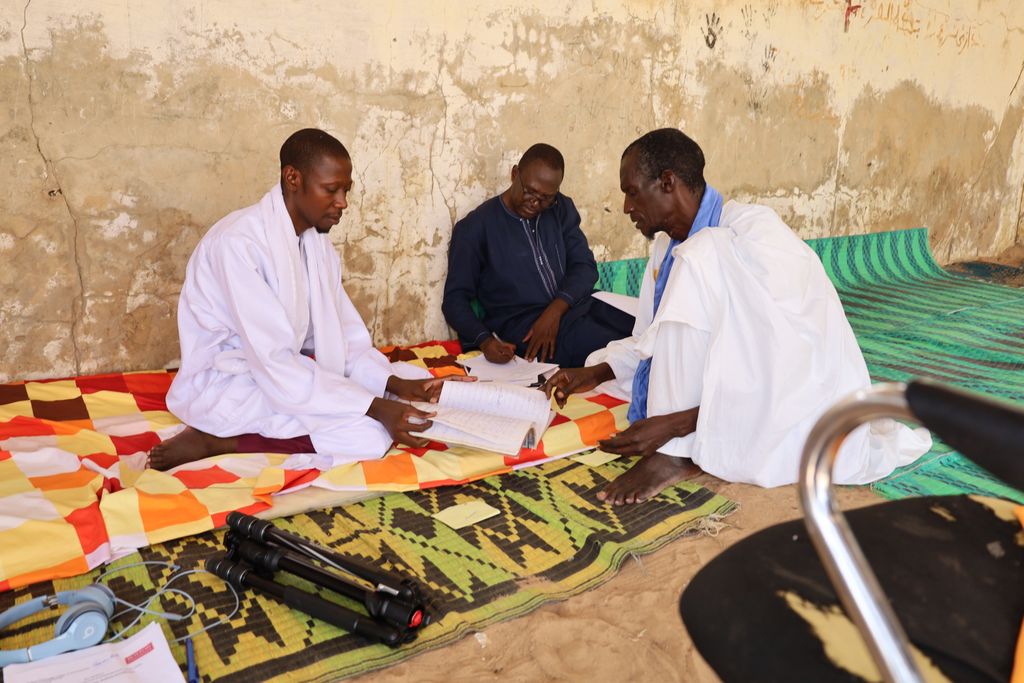
Metadata
| Title | Conversation with Dame Diané |
| Interviewer | Fallou Ngom |
| Subject | Acquisition of Wolof Ajami literacy, Quranic studies, poetry, advertising, communication, marketing, current events, illegal immigration |
| Content | Dame Diané (or Daan Jaane in the standard Wolof Latin script spelling) belongs to the young generation of African Ajami poets. He is also a Quranic teacher in Touba, Senegal. He was born in 1986 in the city of Rufisque (called Tëngéej in Wolof), where he started his Quranic studies. Besides serving as a Quranic teacher, his professional activities include moderating conferences and public lectures, serving as a Master of Ceremony at Quranic recital events, advertising the products of local companies and entrepreneurs in Ajami texts and videos clips, and announcing and broadcasting events to the larger public in Wolof Ajami. He also composes Wolof Ajami poems, both on religious and current social issues such as illegal immigration. In the interview with Professor Ngom, Mr. Diané described his experience in the local Quranic education system, including having to write two complete copies of the Quran from memory as part of his graduation requirement. His Ajami writing skills came through interpersonal communication such as writing letters to his friends and parents and through reading classical and religious texts in Ajami. In the interview, Mr. Diané also reflected on his current role as an educator. Besides teaching the Quran and literacy to his pupils, his activities also include educating children about current events and ongoing social and political issues that their country faces. Mr. Diané finished the interview by citing his recent poem on immigration, reflecting on the causes and consequences of ongoing migration from Senegal to Morocco and Spain, with people crossing the Atlantic Ocean in fishing boats. |
| Language | Wolof |
| Script | Wolof Ajami (locally called Wolofal) |
| Location | Touba, Senegal |
| Pedagogical content/application | Includes relevant linguistic, stylistic and cultural skills as identified in our assessment guidebook/ ACTFL guidelines |
| Access condition and copyright | These materials are subject to copyright and are distributed under the terms of the Creative Commons Attribution-NonCommercial 4.0 License, which permits non-commercial use, distribution, and reproduction in any medium, provided the original author and source are credited. For use, distribution or reproduction beyond these terms, contact Professor Fallou Ngom (fngom@bu.edu). |
| Contributors | Fallou Ngom, Ablaye Diakite, Elhadji Djibril Diagne, Daivi Rodima-Taylor, Gana Ndiaye, Alison Parker and Frank Antonelli. |
| Required citation information | Fallou Ngom (PI), Ablaye Diakite, Elhadji Djibril Diagne, Daivi Rodima-Taylor, and other contributors. 2023. “Conversation with Dame Diané.” https://sites.bu.edu/ria/wolof/wolof-unit-1/ |
Videos
Wolof with English Subtitles
Wolof with Latin Script Subtitles
Community Images
(click on the image for a larger view)
Pedagogical Activities
Glossary
- Àll b-: Wilderness, forest, rural area, or anything related to country life
- Àlluwa g-: A wooden board or tablet where lessons are written for Quranic students. From Arabic al-lawḥ (tablet)
- Askan w-: Ancestry, nation. Patrilineal lineage, belt (geño g-), and matrilineal lineage (ween w- or meen m-). Ween also means breast, and meen m- also means tree sap
- Colin or coliin g-: Attire, clothing style
- Cosaan l-: Custom, tradition, history, origin
- Faramfàcce or faramfànce: To explain, comment
- Jàngat: To analyze, assess, study, look critically
- Làkk: To speak a language. Làkk w-(noun): language, tongue (not to be confused with lakk, to burn)
- Liifantu: To learn the Arabic alphabet
- Loyalu g-: Keyboard
- Mbindinu or Mbindiinu Wolof: Wolofal writing system
- Réew m-: Country, nation, state, territory
- Saafara s-: Liquid potion used for protection or as a remedy
- Saar w-: A chapter of the Quran
- Taalif: To write or compose a poem. Taalif b- (noun): poem. Taalifkat b- (noun): poet
- Tàgg: To praise, extol
- Tari: To recite a lesson
- Teer: To land, reach a shore
- Téere b-: Book. Also used to mean an amulet
- Tënk: To summarize. Also to restrain, tie the feet of an animal or person
- Tukki: To travel. When used as a noun (tukki b-), means travel
- Wolofal b-: Text written with the Arabic script also known as Ajami
Notes
- Aw ci gaal yi: A new expression referring to the phenomenon of undocumented immigration from Senegal to Europe using motorized fishing canoes.
- Bagaanu muñ gi fees na: “The wooden calabash of patience is full,” a Wolof saying meaning: “The pain has become unbearable.” It is used to describe how people ran out of patience and could no longer endure their dire conditions.
- Bind kaamil: To write an entire copy of the Quran. Before graduating from the elementary level of Quranic education, students in Wolof society (especially in Murid areas) must write a complete and flawless copy of the Quran from memory to demonstrate their mastery of the book.
- Dog buumu gàcce g-: A Wolof phrase literally meaning “to break the chains of public shame.” It is the belief that young adults must work, be successful, and solve all sorts of problems for their parents and family members. Failing to do so is regarded as shameful in Wolof society. Because public shame is so feared in Wolof society, people will do whatever it takes to avoid attracting shame to themselves and their families, including taking dangerous canoes to migrate to Europe.
- Jàng xam-xam: To pursue advanced studies. When Quranic students finish memorizing the Quran in Wolof society, they enter this phase of advanced studies.
- Jël mbëk mi: A synonym of aw ci gaal yi. A new expression meaning to take the dangerous path of undocumented migration to Europe through the Atlantic Ocean using local canoes.
- Ndigal or Ndigël l-: Order, injunction, directive, instruction, guideline received from an authority, often a religious leader. It is a key principle of the Muridiyya Sufi order of Senegal founded by Shaykh Ahmadu Bamba (1853-1927).
- Njabootu buur: “The family of the king” used as a metaphor to refer to the politicians and their entourage.
- Sunuy rangooñ a dëkkee siim cerey buur: “Our tears are sauce for the lavish dishes of the king. ” This is used as a metaphor to describe how the sweat and tears of hardworking folks sustain the lavish lifestyle of the politicians in power.
- Sëriñ or Sëñ b-: Quranic teacher, spiritual master, or an honorific title for men. The equivalent title for women is Soxna si.
- Tugël or Tugal: Europe. It likely comes from Tugal, the abbreviation of Portugal, as the first Europeans to set foot in Wolof lands were Portuguese.
- Xew-xew: Event, news, or current issues. It is derived from the verb xew (occur, happen). When used as a noun, xew mi means a ceremony.
Exercises:
Comprehension || Writing || Listening / Speaking and Conversation || Cultural Competence
Comprehension: Video
Comprehension: Image
Writing
Listening / Speaking and Conversation
- Podkast ak Widewoo: Defaral ab podkast ci mbiru widewoo bi walla nga defar ay widewoo yu gàtt yuy faramfàcce mbir yi widewoo bi ëmb, ci sa xalaat.
Cultural Competence
- Deferal ab teyaatar ci Wolof buy wone ab aada bu am solo boo jukkee ci widewoo bi.
